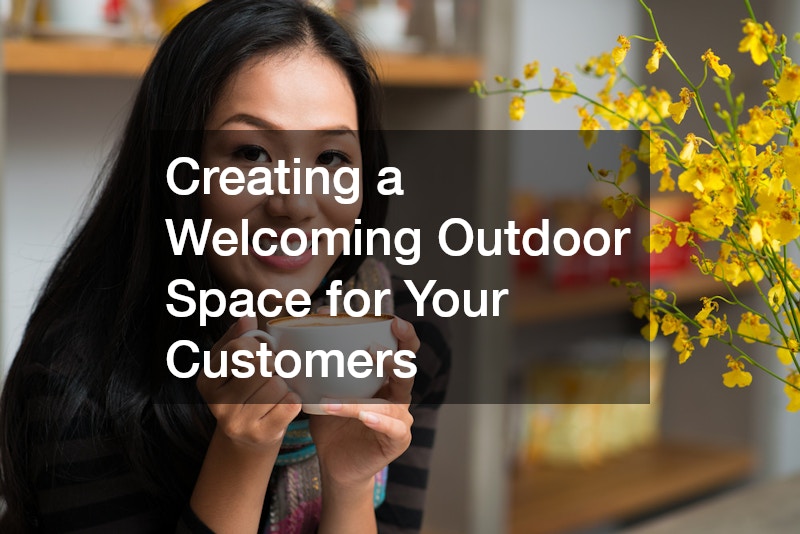
Use This Cafe Business Model to Open Your Coffee Shop

Introduction
Opening a coffee shop is an exciting opportunity, but it requires careful planning and a well-structured cafe business model to succeed. From choosing the right location to ensuring smooth daily operations, every detail plays a role in long-term sustainability. A well-designed strategy covers factors such as financing, equipment, customer experience, and operational efficiency. The ability to balance quality products with effective management practices is what sets thriving coffee shops apart from those that struggle. Additionally, understanding local regulations, supply chain logistics, and evolving consumer preferences can make the difference between a profitable business and one that faces ongoing challenges.
One of the first steps in implementing a cafe business model is ensuring that the foundational aspects of the business are strong. This means securing a steady source of utilities, maintaining an efficient workflow, and investing in the right infrastructure. For instance, a reliable heating system is essential for providing a comfortable environment for customers, especially in colder regions. Similarly, keeping security measures in place is crucial for protecting both staff and assets. By addressing these key factors early on, business owners can build a strong foundation that supports the coffee shop’s daily operations and future growth.
Establishing a Strong Foundation for Your Cafe’s Success

The foundation of a successful coffee shop goes beyond good coffee and a welcoming atmosphere. It includes the essential systems that keep the business running smoothly, such as heating, plumbing, and electrical setups. Without these basic elements in place, even the most well-planned cafe will struggle to function efficiently. A well-maintained heating system is especially important in colder climates, ensuring that customers and employees stay comfortable during business hours. Proper temperature control not only enhances the customer experience but also helps preserve ingredients and equipment that require specific storage conditions. Additionally, investing in energy-efficient systems can reduce operating costs in the long run, allowing business owners to allocate resources toward growth and customer engagement.
For example, if a coffee shop is located in a region with harsh winters, working with a heating company to install and maintain an efficient system is crucial. Cold indoor temperatures can discourage customers from staying to enjoy their drinks, affecting revenue and customer retention. Moreover, fluctuating temperatures can negatively impact espresso machines, refrigeration units, and other essential equipment, leading to costly repairs. By partnering with a professional heating company, cafe owners can ensure a comfortable and energy-efficient space that supports both the business and its patrons. This proactive approach aligns with a well-structured cafe business model, allowing for long-term success without unexpected operational setbacks.
Enhancing Safety and Security in Your Coffee Shop
Security is a critical factor in the success of any coffee shop, ensuring the safety of both employees and customers while protecting valuable assets. A well-thought-out cafe business model includes security measures to prevent theft, vandalism, and unauthorized access. Many coffee shops operate early in the morning and late into the evening, making them potential targets for security breaches. Investing in security measures such as surveillance cameras, alarm systems, and controlled access points helps business owners maintain a safe environment while reducing the risk of financial losses. Additionally, visible security features can deter potential threats, giving both customers and staff peace of mind.
To implement effective security measures, business owners should consider working with commercial security system providers. These experts can assess the cafe’s specific needs and install security cameras, motion detectors, and alarm systems to safeguard the premises. For instance, a coffee shop located in a busy downtown area may require additional security at the entrance and cash register area, while a suburban cafe might benefit more from perimeter monitoring. Integrating a commercial security system into the cafe business model ensures that safety remains a priority, allowing staff to focus on providing excellent service without concerns about potential security threats.
Creating a Welcoming Outdoor Space for Your Customers

A well-designed outdoor seating area can enhance a coffee shop’s appeal and attract more customers. Many people enjoy sipping their coffee in an open-air environment, making an outdoor space an important feature in a cafe business model. A designated outdoor area provides additional seating, which is particularly beneficial during peak hours when indoor seating fills up quickly. However, to make the most of this space, it’s essential to consider elements such as privacy, security, and aesthetics. Proper enclosures, greenery, and weather-resistant furniture can create an inviting atmosphere that encourages customers to stay longer. Additionally, having an outdoor section allows cafes to accommodate pet owners who wish to bring their furry companions along.
To establish a functional and attractive outdoor space, working with fence companies can be beneficial. A high-quality fence can provide privacy, noise reduction, and security while complementing the cafe’s overall aesthetic. For example, a coffee shop located in a high-traffic urban area might opt for a decorative metal fence with added greenery to create a peaceful retreat for customers. Meanwhile, a suburban cafe may choose a wooden enclosure to provide a cozy, rustic feel. Incorporating fencing solutions into a cafe business model ensures that outdoor spaces are both visually appealing and practical, enhancing the overall customer experience.
Preparing for Unexpected Water Damage
Water damage can disrupt coffee shop operations and lead to costly repairs, making it a serious concern for business owners. Whether caused by plumbing failures, leaks, or extreme weather conditions, water damage can ruin equipment, furniture, and inventory. Additionally, excessive moisture can create an unhealthy indoor environment, leading to mold growth and structural damage. A proactive cafe business model should include preventive measures such as regular plumbing inspections, waterproofing solutions, and contingency plans for handling unexpected flooding. Investing in proper drainage systems and leak detection technology can help minimize the risks associated with water damage, allowing business owners to focus on customer service and daily operations.
If a coffee shop experiences water damage, partnering with a flood restoration service is essential for a swift recovery. These professionals specialize in removing excess water, drying affected areas, and restoring damaged property to its original condition. For example, a cafe with water-damaged flooring may require specialized drying techniques to prevent long-term structural issues. Additionally, flood restoration experts can assess the extent of damage to coffee-making equipment and advise on necessary replacements or repairs. By incorporating flood restoration service options into a cafe business model, business owners can ensure that their coffee shop remains operational, even in the face of unexpected water-related challenges.
Installing the Right Heating System for Your Cafe

Maintaining a comfortable indoor temperature is essential for any coffee shop, ensuring that both customers and employees can enjoy a pleasant atmosphere. Temperature control is especially important during colder months when customers seek out warm and cozy spaces to relax with their coffee. A well-regulated indoor climate can also help preserve ingredients, prevent excessive wear on equipment, and contribute to overall energy efficiency. Including an effective heating solution in a cafe business model helps business owners manage operational costs while providing a welcoming environment for patrons. Additionally, energy-efficient heating systems can reduce monthly utility expenses, allowing coffee shop owners to reinvest savings into other areas of the business.
For optimal temperature control, working with a furnace installation professional is a smart investment. These experts can recommend the best heating system based on the size and layout of the coffee shop, ensuring consistent warmth throughout the space. For example, a small cafe with limited space may benefit from a compact, high-efficiency unit, while a larger establishment may require a more powerful system to heat multiple areas effectively. A properly installed furnace ensures that customers remain comfortable, encouraging them to stay longer and return frequently. By integrating furnace installation into a cafe business model, coffee shop owners can create an inviting space that meets customer expectations year-round.
Investing in Durable Flooring for High-Traffic Areas
The flooring in a coffee shop plays a critical role in both aesthetics and functionality. Because cafes experience a constant flow of customers, spills, and heavy foot traffic, choosing the right flooring is essential for long-term durability. A cafe business model should account for flooring that is easy to clean, resistant to moisture, and capable of withstanding wear and tear. Materials like polished concrete, tile, or sealed hardwood provide a professional look while maintaining resilience against daily operations. Flooring choices should also align with the overall design of the space, reinforcing the brand’s image and creating a welcoming environment for patrons.
When planning the construction or renovation of a coffee shop, working with a concrete contractor can ensure the flooring is installed correctly and built to last. A professional can assess the shop’s needs and recommend materials that balance durability and cost-effectiveness. Slip-resistant surfaces are another key consideration, as safety should always be a priority in high-traffic areas. Additionally, sealing the flooring properly helps protect against spills and stains, making maintenance easier for staff. By choosing high-quality flooring, cafe owners can enhance both the customer experience and the efficiency of daily operations.
Structuring Finances for Long-Term Stability

Financial planning is a crucial element in running a successful coffee shop. A well-thought-out cafe business model includes budgeting for startup costs, daily expenses, and potential unexpected costs. Owners should have a clear understanding of revenue streams, including product pricing, upselling opportunities, and seasonal trends. Tracking cash flow ensures that the business remains profitable and sustainable in the long run. Additionally, securing funding through loans, investors, or grants can help with initial setup costs and expansion efforts. Careful financial planning also allows businesses to reinvest in marketing, equipment upgrades, and staff training, all of which contribute to long-term growth.
Consulting a financial planning service can provide valuable insights into managing a coffee shop’s finances effectively. Experts in financial planning can help set realistic profit goals, manage tax obligations, and create investment strategies for future expansion. They can also guide business owners in making informed decisions regarding cost-cutting measures without compromising quality. By implementing sound financial strategies, coffee shop owners can maintain steady growth and remain competitive in an ever-changing market. Proper financial planning ultimately lays the foundation for a thriving and resilient business.
Sourcing Reliable Supplies for Daily Operations
A successful coffee shop relies on a steady supply of high-quality ingredients and equipment. From coffee beans and syrups to cups and cleaning products, every component contributes to the overall efficiency of the business. Establishing relationships with trusted suppliers ensures that the cafe consistently delivers excellent products to its customers. A strong cafe business model factors in inventory management, allowing owners to track usage patterns and avoid shortages. Reliable suppliers also help maintain consistency in the flavor and presentation of menu items, which is essential for building customer loyalty.
Partnering with a local contractor supplies company can streamline the process of obtaining essential materials for the shop. Whether it’s fixtures, storage solutions, or maintenance tools, a dependable supplier can ensure timely deliveries and cost-effective solutions. Bulk purchasing from a local provider can also lead to cost savings while supporting other businesses within the community. By securing a network of reliable suppliers, coffee shop owners can reduce operational disruptions and focus on delivering a high-quality experience to their customers.
Enhancing Security Measures for Customer and Employee Safety
Security is a fundamental aspect of running a successful coffee shop. A well-structured cafe business model includes measures to protect both customers and employees from potential risks. Security features such as surveillance cameras, proper lighting, and controlled access to storage areas help deter theft and unauthorized access. Additionally, clear policies on handling cash and training staff on emergency procedures contribute to a safer work environment. Having a secure establishment not only prevents financial losses but also builds trust with customers who appreciate a safe and welcoming atmosphere.
Working with alarm system companies can help coffee shop owners implement a tailored security plan. These professionals can install surveillance cameras, motion detectors, and alarm systems to monitor the premises around the clock. Modern security systems also allow for remote monitoring, giving owners real-time access to their shop’s security status from anywhere. Investing in a high-quality security system provides peace of mind and ensures that the business operates smoothly without unnecessary interruptions or risks.
Sealing and Maintaining Your Shop for Long-Term Durability
A coffee shop’s physical structure requires ongoing maintenance to remain in top condition. From sealing windows and doors to ensuring insulation and ventilation systems function correctly, regular upkeep prevents costly repairs and extends the lifespan of the building. A durable cafe business model includes a maintenance plan that addresses potential wear and tear, especially in high-traffic areas. Proper sealing also contributes to energy efficiency by reducing drafts and keeping the interior temperature stable, which is crucial for both customer comfort and product storage.
Local caulking contractors can assist coffee shop owners in sealing gaps and cracks that may develop over time. Whether it’s reinforcing windows, doors, or plumbing fixtures, professional caulking services help prevent water leaks, air loss, and pest infestations. Investing in these maintenance efforts enhances the overall integrity of the building, ensuring that it remains a comfortable and energy-efficient space for both employees and customers. By proactively addressing structural maintenance, coffee shop owners can avoid costly issues and keep their business running smoothly.
Conclusion
Opening a coffee shop requires more than just a passion for great coffee—it demands a strong strategy that covers every aspect of the business. A well-developed cafe business model accounts for everything from high-quality flooring and financial planning to reliable supply chains and security measures. Ensuring that every operational detail is managed effectively allows for a seamless customer experience and long-term success.
By working with experts in fields such as construction, security, and financial planning, cafe owners can build a solid foundation for their business. Whether it’s sourcing materials from a local contractor supplies company or installing alarm systems for added protection, these investments contribute to a shop’s overall efficiency and reputation. With the right planning and support, a coffee shop can become a thriving hub for customers looking for a great experience, excellent service, and, of course, the perfect cup of coffee.


